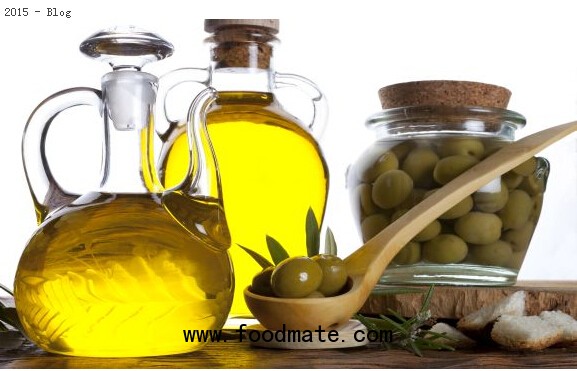
In January 2015, NCL purchased 11 different varieties of olive oil—all labeled extra virgin—from four major Washington area retailers (Whole Foods Market, Trader Joe’s, Safeway and Giant). Of those 11 products, six failed to meet International Olive Council (IOC) standards required to be considered extra virgin quality; only five were found to be true extra virgin olive oils.
Olive oils are classified based on their chemistry, flavor profile, and presence of defects, and are labeled (from best quality to worst quality) extra virgin, virgin, ordinary, and lampante. An olive oil found to have any defects cannot be classified as “extra virgin." At the other end of the spectrum, lampante is a classification that USDA, along with other standard-setting authorities, uses to indicate that the oil is not fit for human consumption.
NCL commissioned the Australian Oil Research Laboratory (AORL), a leading testing facility accredited by the IOC and the American Oil Chemists’ Society, to comprehensively analyze the oils with a variety of tests, including sensory assessment in order to identify flavor profiles and defects in the oils.
Only five products were found to have no flavor defects and to be classified as extra virgin—California Olive Ranch “Extra Virgin Olive Oil," Colavita “Extra Virgin Olive Oil," Lucini “Premium Select Extra Virgin Olive Oil," Trader Joe’s “ Extra Virgin California Estate Olive Oil" and Trader Joe’s “100% Italian Organic Extra Virgin Olive Oil." All samples tested were found to be 100-percent olive oil, and none were cut with refined oil or seed oil, which is a form of EVOO fraud
“The results of our olive oil testing reveal that, while consumers are buying and paying extra for olive oil labeled EVOO, too much of the olive oil bought off the shelf isn’t the real deal. It’s mislabeled, or it’s been degraded over the course of the shipping and storage process. When that happens, consumers are paying top dollar for that EVOO label without getting the enhanced health and taste benefits," said NCL Executive Director Sally Greenberg.
This is not the first time EVOO food fraud has been discovered. In July 2010, the UC Davis Olive Center issued a report showing that 69 percent of imported olive oils labeled as “extra virgin" failed the IOC sensory standard. That report led to a class-action lawsuit against some of California's largest distributors and retailers of EVOO for misleading and defrauding California consumers by claiming the olive oil they sell meets the high standards of the "extra virgin" classification, when in fact the product does not meet that standard and is of inferior quality often adulterated with cheaper refined oils such as hazelnut oil or lesser olive oils. In September 2012, Consumer Reports published results of its testing of EVOO-labeled samples and found only nine of 23 met the EVOO standards.
“Based on my experience and observations, I believe there is widespread mislabeling of extra virgin olive oil," said Paul Miller, president of the Australian Olive Association. “In many cases, the packers of EVOO products may knowingly distribute older oils that may have been extra virgin at one point, but stand little chance of remaining extra virgin by the time the oil hits the grocery store shelves. In the worst cases the oil was probably nowhere near extra virgin quality when it was packed. The ‘best by’ dates can be inaccurate, leaving consumers with oil mislabeled as ‘extra virgin’ that is of poor quality, is not fresh or flavorful and lacks all the positive health effects of true extra virgin olive oil. In countries where the law on the books is enforced, such as Italy, Canada, Australia, and Germany, these problems are significantly reduced, but the United States currently is not one of those countries."
Some states are enacting stricter olive oil labeling and grading standards. California recently approved rules that include more precise requirements for testing for adulteration. While California’s stricter standards are welcome, the state supplies only 2 percent of America’s total olive oils.
“The U.S. needs stricter oversight and enforcement of EVOO labeling and standards," said Greenberg. “Because neither FDA nor USDA has done effective spot testing and enforcement, consumers are left with little protection in this market. Retailers and the producers they buy from need to commit to cleaning up the market in America. If Italy, Canada, Australia, and Germany can work to clean up their EVOO industry, so can we. Consumers need to know that when they see ‘extra virgin olive oil’ on the product, they are actually getting what they paid for."






